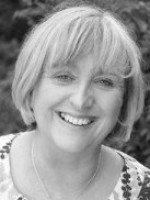Is it too late for couple counselling? Can it really help?
Is it too late and can couple counselling really help? These are two of the questions that people thinking about relationship counselling often have. The answer is that in many cases, it is not too late and yes, couple counselling can and does make a significant difference in many relationships.
When couple counselling can be effective
- When both partners are unhappy about a particular aspect of the relationship but know that they want their relationship to work.
- When the relationship has hit a crisis point - for example an affair has been discovered. Other possible crisis points might be where one partner feels ready to leave or one or both partners feel they have fallen out of love.
- When a couple feel ‘stuck’: they have tried to resolve their issues but go round and round in circles which can lead to a frustration and resentment
- When one partner feels unhappy but doesn’t know how to tell their partner so starts to withdraw from the relationship.
- When a couple are thinking about moving in together or getting married and want to ensure they have a shared expectations and understanding of the relationship.
How couple counselling can help
Often there is a sense that things are just too difficult to talk about or that there is never a good time to talk. The temptation can be to hope that somehow things will just sort themselves out. The painful reality is that if there are angry, resentful feelings in the relationship and they’re suppressed, they will come out in one way or another. Sometimes an affair starts but more often the feelings are expressed in the way we behave towards each other. For example, feeling constantly irritated by our partner; not wanting to spend any time together; looking for arguments; feeling nothing we do is right.
Couple counselling can provide a neutral environment with a third person so issues that have never been discussed or, that have been discussed before but not resolved, can be worked through in a controlled, ’safe’ way. Couple counselling can help couples understand why things have gone wrong. This can then put the couple in a place where a better way forward can be worked out.
Sometimes both partners are unhappy about the same aspect of the relationship and both want to resolve that issue. In these cases counselling can be very effective in a relatively short time – often in a matter of weeks.
Quite often at the start of counselling, the two partners have a very different view of what the issues and causes of the difficulties are. Counselling isn’t about apportioning blame but about acknowledging what it is about the couple dynamic that does and doesn’t work. It’s not so unusual for one person to be quite sceptical about the relationship’s future whereas the other person thinks things could be resolved. If this is the case it’s important to acknowledge the purpose of the counselling. In these situations, the work is about reaching a shared understanding of how the couple dynamic works, to see how ‘broken’ the relationship actually is, before a decision is made about its future. Then counselling can help the couple to use this understanding to move forward.
If both partners want to make changes, they can come back from very difficult, even traumatic, places. The work is then about rebuilding the relationship going forward – not about trying to recapture what used to be before things were difficult.
However, it may be that things have gone too far for both partners. Counselling can then be about making a separation less hostile/distressing. If the couple have children, whatever happens between them, their relationship as parents will continue – and the way they manage this will be absolutely key for the children. When there are high emotions/conflict between a couple, children can be impacted badly – whether the parents are together or apart. Counselling can help manage this.
Occasionally it does happen that the partners don’t agree on a way forward. At this point individual counselling can provide key support in managing the huge sense of loss.
When couple counselling is not appropriate
If there is ongoing domestic violence, couple counselling is not appropriate. Help and support for male and female perpetrators of domestic violence (emotional as well as physical) is available through Respect http://www.respectphoneline.org.uk/phoneline.php.
For female victims, there is support through Women’s Aid www.womensaid.org.uk, and for male victims, Respect offer advice and support www.mensadviceline.org.uk as do ManKind at www.mankind.org.uk.
Individual counselling with a relationship counsellor can also be very helpful for victims of domestic violence.
Summary
The role of a couples’ counsellor is to work with both members of the couple – to enable them both to share their experience of the relationship and hear their partner’s. Clients often talk about hearing things in a different, more constructive way in the counselling environment. Sometimes people want counsellors to tell them or their partner what to do - but no counsellor will tell one partner they must let the other partner go or tell someone that they must stay in a relationship (unless there are issues of safety). What they will do is work alongside the couple to help them make an informed decision about the future of their relationship.

Find a therapist dealing with Relationship problems
All therapists are verified professionals






